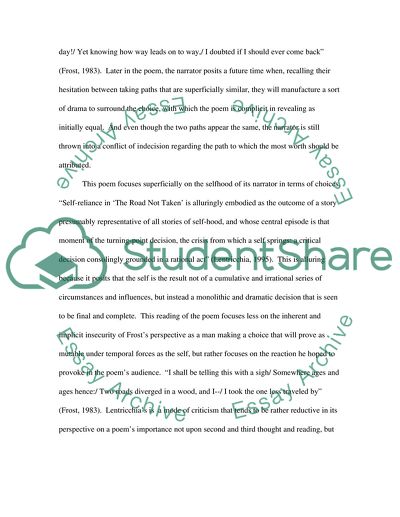Cite this document
(“The Road Not Taken by Robert Frost Essay Example | Topics and Well Written Essays - 1250 words”, n.d.)
The Road Not Taken by Robert Frost Essay Example | Topics and Well Written Essays - 1250 words. Retrieved from https://studentshare.org/literature/1723619-promt-essay-about-robert-frost-poem
The Road Not Taken by Robert Frost Essay Example | Topics and Well Written Essays - 1250 words. Retrieved from https://studentshare.org/literature/1723619-promt-essay-about-robert-frost-poem
(The Road Not Taken by Robert Frost Essay Example | Topics and Well Written Essays - 1250 Words)
The Road Not Taken by Robert Frost Essay Example | Topics and Well Written Essays - 1250 Words. https://studentshare.org/literature/1723619-promt-essay-about-robert-frost-poem.
The Road Not Taken by Robert Frost Essay Example | Topics and Well Written Essays - 1250 Words. https://studentshare.org/literature/1723619-promt-essay-about-robert-frost-poem.
“The Road Not Taken by Robert Frost Essay Example | Topics and Well Written Essays - 1250 Words”, n.d. https://studentshare.org/literature/1723619-promt-essay-about-robert-frost-poem.


